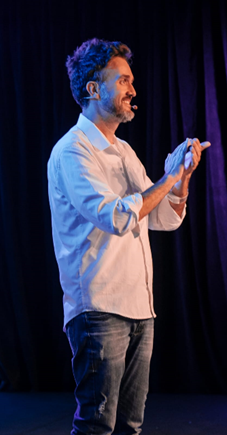 *By Eduardo Prazeres
*By Eduardo Prazeres
The job market has changed over the years, making it essential for professionals to keep up with trends and adapt to ensure their employability. To give you an idea, according to the study “Future of Work”, published by the World Economic Forum (WEF), in partnership with the Center for Innovation, Artificial Intelligence and Digital Technologies of the Dom Cabral Foundation (FDC), around 39% of existing skills will need to be transformed or become obsolete between 2025 and 2030. In this scenario, updating appears as a strategic advantage for those who want to stand out in this expanding market.
In addition to technical knowledge in programming, cloud computing, cybersecurity and data analysis, for example, relational skills such as critical thinking and teamwork are increasingly valued. With the rapid evolution of technologies, continuous training through certifications and specialized courses must be an essential part of the routine of professionals who aspire to a career in IT.
This is because, with companies facing difficulties in finding qualified talent, skills like these become competitive differentiators that can boost hiring possibilities.
Hard skills or soft skills: which is more relevant in IT?
For some highly technical positions, mastery of hard skills is essential. However, in many cases, the decisive factor in choosing a candidate is their attitude, commitment and ability to learn.
After all, companies can support training technical, but the professional is primarily responsible for its development. In other words, technical knowledge can be acquired, but interpersonal skills are still lacking in the market.
Automation and AI: the future of efficiency in companies
The evolution of Artificial Intelligence (AI), especially generative AI, is driving automation and increasing efficiency in companies. To give you an idea, implementing AI is one of the top 85% priorities for companies in the coming years, according to research developed by Bain & Company.
This context is already visible in sectors such as Human Resources, both in process automation and in talent development. AI-based tools can identify skills gaps, suggest training and create personalized development plans, fully integrated with people management systems. With this, managers and employees can have access to structured plans, providing greater clarity to jointly define the next steps. Thus, AI offers a new perspective for technology professionals, who must also follow this trend to secure strategic positions in companies.
Strategic and aware vision
No less important, anyone who wants to work in the technology sector needs to be aware of the current and future scenarios. This means following trends, reading articles with credible sources and information, and monitoring market developments.
In short, rather than focusing on the present, it is necessary to study the past and anticipate what lies ahead. After all, professionals who are aware, who constantly seek knowledge and are able to develop a broad vision of the sector, are those who stand out the most and are most valued.
*Eduardo Prazeres is the Human Resources Director at SoftwareOne, a leading global provider of end-to-end solutions for software and cloud technology.
Notice: The opinion presented in this article is the responsibility of its author and not of ABES - Brazilian Association of Software Companies













